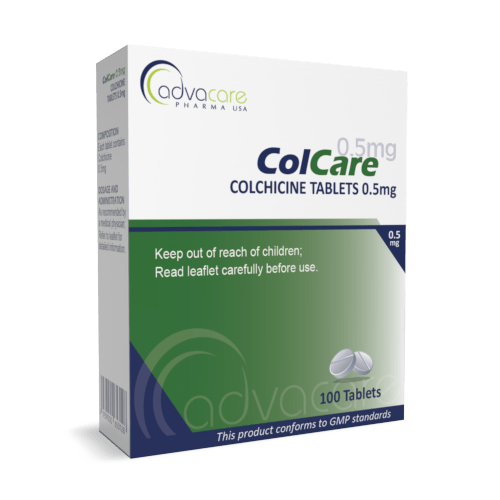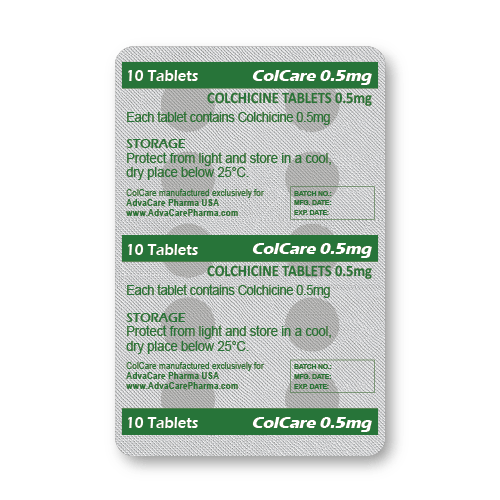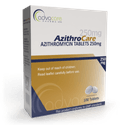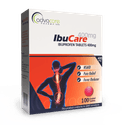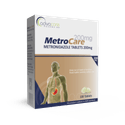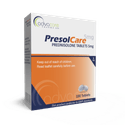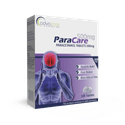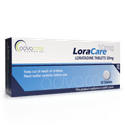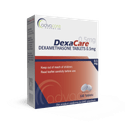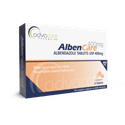- Home›
- Pharmaceuticals›
- Pharmaceutical Tablets›
- Colchicine Tablets
Colchicine Tablets
Dosage
Packaging
What is Colchicine?
Active Ingredients: Colchicine
Colchicine Tablets are a drug used to treat and prevent gout flares in adults. It is also used to treat symptoms associated with Behcet's syndrome, including swelling, redness, pain, or warmth. Colchicine is also used to treat familial Mediterranean fever in adults and children over 4 years old.
Colchicine is classified as an anti-gout or uricosuric agent. Colchicine’s mechanism in patients with FMF has not been fully elucidated, however, it likely interferes with the intracellular assembly of the inflammasome complex in neutrophils and monocytes which mediates the activation of an inflammatory mediator, interleukin-1β. Colchicine exhibits its anti-gout effects by inhibiting microtubule polymerization, which consequently prevents the activation, degranulation and migration of neutrophils thought to mediate some gout symptoms.
AdvaCare Pharma is a trusted global producer of Colchicine Tablets. We offer an extensive range of high-quality and cost-effective pharmaceutical products that are available for distribution. Our factories are GMP-certified and are regularly inspected to ensure they continue to meet the high standards necessary to comply with WHO guidelines and standards.
Why are we a leading Colchicine manufacturer?
As a reputable Colchicine manufacturer, we are dedicated to ensuring that GMP guidelines and standards strictly apply to the manufacture of our entire range of 200+ pharmaceutical treatments in tablet dosage form.
AdvaCare Pharma is an American pharmaceutical company committed to the manufacture of high-quality, affordable pharmaceuticals for a global market. The extensive international network that we partner with includes pharmaceutical distributors, hospitals, pharmacies, and a variety of other medical institutions. Our vision is to manufacture Colchicine Tablets, and other quality-assured oral solid treatments, that get into the hands of those that need them most.
Uses
What is Colchicine used for?
It is indicated to treat or prevent gout flare-ups in adults. It is also used to treat Familial Mediterranean Fever in adults and children over 4 years old.
How are Colchicine Tablets used?
This medication is intended to be taken orally. They can be taken with or without food.
Colchicine Tablets should be taken for the entire advised treatment duration, even if symptoms improve before treatment completion.
What dose should be taken and for how long?
Recommended dosage may vary based on different medical conditions:
- For the prevention of gout flares in adults and adolescents (≥ 16 years), the recommended dose is 0.6mg once or twice daily. The maximum prophylactic dose is 1.2mg/day.
- For the treatment of gout flares in adults and adolescents (≥ 16 years), the recommended dose is 1.2mg (two tablets) at symptom onset followed by 0.6mg (one tablet) an hour later. The maximum flare dose is 1.8mg in an hour. If treating a flare during prophylaxis, wait 12 hours before resuming prophylactic dosing.
- For the treatment of familial Mediterranean fever (FMF) in adults, the recommended dose is 1.2-2.4mg/day taken in a single or divided dose. The dosage should be increased as needed in increments of 0.3mg/day. If dose results in undesirable side effects, dosage should be decreased in increments of 0.3mg/day.
- For the treatment of FMF in children (4-6 years), the recommended dose range is 0.3-1.8mg/day taken in a single or divided dose.
- For the treatment of FMF in children (7-12 years), the recommended dose range is 0.9-1.8mg/day taken in a single or divided dose.
- For the treatment of FMF in children (> 12 years), the recommended dose range is 1.2-2.4mg/day taken in a single or divided dose.
To treat Behcet disease or pericarditis, the recommended dose is 0.6mg, taken once or twice a day.
Refer to a doctor or pharmacist for more specific guidelines on dosage. Do not exceed what they advise.
Who can use Colchicine?
Colchicine can be administered to adults and children (≥ 4 years), but caution is advised for specific groups of patients.
Pregnant Colchicine is a category C pregnancy risk. Animal studies indicate that colchicine causes embryofetal toxicity, teratogenicity, and altered postnatal development within or above therapeutic doses. Current data from human studies of colchicine use during pregnancy over several decades have not found evidence of drug-associated risks for major birth defects, miscarriage, or adverse maternal or fetal outcomes. Risk cannot be ruled out and colchicine should only be used during pregnancy if the potential benefit justifies any potential risk to the fetus.
Nursing Colchicine is excreted in human milk. Limited studies have not reported adverse events in nursing infants exposed to colchicine. The benefits of breastfeeding, the clinical need for colchicine, and any potential infant adverse effects should be considered.
Pediatric There is no evidence that long-term colchicine use in children with FMF has adverse effects on growth.
The safety and efficacy of colchicine use for preventing and treating gout flares in pediatric patients have not been established.
Geriatric There are insufficient studies with adults ≥ 65 years old to determine whether they respond differently than adults < 65 years old. Due to general concerns of increased drug sensitivity, impaired renal function, and concomitant disease and drug therapy, dosing in geriatric patients should be reduced and administered with caution.
Other warnings
Fatal overdoses in adults and children from accidental and intentional colchicine ingestion have been reported. The exact dosage that produces potentially life-threatening toxicity is unknown. The first signs of colchicine overdose typically manifest within 24 hours of ingestion and include gastrointestinal symptoms such as abdominal pain, nausea, vomiting, diarrhea, and significant fluid loss. Life-threatening complications typically manifest 24 to 72 hours after ingestion and are associated with multiorgan failure. Fatalities are usually the result of respiratory depression and cardiovascular collapse. Colchicine overdose is treated with gastric lavage (stomach pumping) and symptoms are managed to prevent shock. Colchicine Tablets should be kept out of the reach of children.
The elimination of colchicine in patients with mild and moderate renal impairment is unknown. Dose reduction may be necessary. Patients with severe renal failure and end-stage renal disease requiring dialysis may be started at a dose of 0.3mg/day. Patients with renal insufficiency should be monitored closely for adverse effects for the duration of treatment.
In patients with mild to moderate hepatic insufficiency, the dosage for the prevention and treatment of gout does not need to be adjusted. For the prophylaxis of gout flares, dose reduction should be considered in patients with severe hepatic insufficiency. For the treatment of gout flares and FMF, dosage does not need to be adjusted in patients with severe hepatic impairment, but the treatment should not be repeated more than once every 2 weeks. Patients with hepatic insufficiency should be monitored closely for adverse effects for the duration of treatment.
Bone marrow depression and blood conditions, such as agranulocytosis myelosuppression, leukopenia, granulocytopenia, thrombocytopenia, pancytopenia, and aplastic anemia, have been reported with colchicine use at therapeutic doses.
Concomitant use of colchicine with medications that inhibit CYP3A4 and/or P-glycoprotein (P-gp) increases the risk of life-threatening and potentially fatal colchicine-induced toxic effects and may warrant dosage adjustments. The use of colchicine with P-gp/CYP3A4 inhibitors (including all protease inhibitors except fosamprenavir) is contraindicated in patients with renal or hepatic impairment.
Neuromuscular toxicity and rhabdomyolysis have been reported in chronic colchicine treatment. Older patients and those with renal dysfunction are at an increased risk. Concomitant use of colchicine with medications known to cause myotoxicity may increase the risk of developing myopathy. Symptoms are generally reversible with treatment cessation.
Side Effects
As with all pharmaceuticals, some unwanted effects can occur from the use of Colchicine Tablets.
Common side effects include, but may not be limited to: • gastrointestinal effects (nausea, vomiting, stomach pain, diarrhea)
Seek medical attention if the following develop:
- muscle pain or weakness
- numbness or tingling in the extremities caused by peripheral neuropathy associated with the prolonged use of colchicine at higher doses
- pale or gray appearance of the hands, tongue or lips
- severe or continuous vomiting or diarrhea
- flu-like symptoms
- unusual bruising or bleeding
In rare cases, the administration of colchicine may give rise to a condition known as bone marrow suppression, which has the potential to lead to diminished counts of blood cells. This hematological complication may be evidenced by occurrences such as unexplained bruising, prolonged bleeding, or heightened fatigue. It is imperative that individuals taking colchicine remain vigilant for any signs of these uncommon but serious effects and promptly seek medical attention if such symptoms arise.
For a comprehensive understanding of all potential side effects, consult a medical professional.
If any symptoms persist or worsen, or you notice any other symptoms, please call your doctor immediately.
Precautions
Do NOT use Colchicine Tablets if: • You are allergic or hypersensitive to any of the ingredients.
This medication may not be suitable for people with certain conditions, including:
- Liver or kidney disease.
- Those requiring treatment with digoxin or cholesterol-lowering medications.
This medicine should only be used during pregnancy and breastfeeding if the benefits outweigh the risks. Consult a doctor or healthcare professional before treatment.
Grapefruit may impact the efficacy of this medicine, potentially increasing its levels in the blood so it is best to avoid grapefruit products during treatment.
Many drugs are known to interact with colchicine, including cyclosporine, nefazodone, tipranavir, clarithromycin, certain azole antifungals, and HIV/AIDs medications. Tell your doctor about any medications and supplements you are taking before beginning treatment.
References
Colchicine for the treatment of gout
This study included research of databases about the colchicine’s efficacy in the treatment of gout.
The results revealed that colchicine is a drug with a narrow therapeutic toxicity but it is efficacious in the treatment of acute attack of gout.
The conclusion is that low-dose colchicine (1.8mg over 1 h) taken as early as possible (‘pills in the pocket’) is effective in reducing pain and is well tolerated in patients with acute gout.
Colchicine Therapy for Familial Mediterranean Fever — A Double-Blind Trial
This is a double-blind trial that compared the efficacy of colchicine or placebo in 11 patients with long-standing familial Mediterranean fever.
In 60 courses of placebo, 38 attacks occurred, while in 60 courses of colchicine, only 7 attacks of familial Mediterranean fever occurred (p < 0.001, by chi-square test). The standard prescribed dose for this drug is 3 tablets daily, but most patients had positive outcomes with 2 tablets per day.
The findings from this study reveal that daily colchicine is effective in preventing attacks from familial Mediterranean fever.
You might be interested in...
Why AdvaCare Pharma?
As an industry leader, we are aware of our responsibility to provide affordable and sustainable solutions to improve healthcare worldwide.
